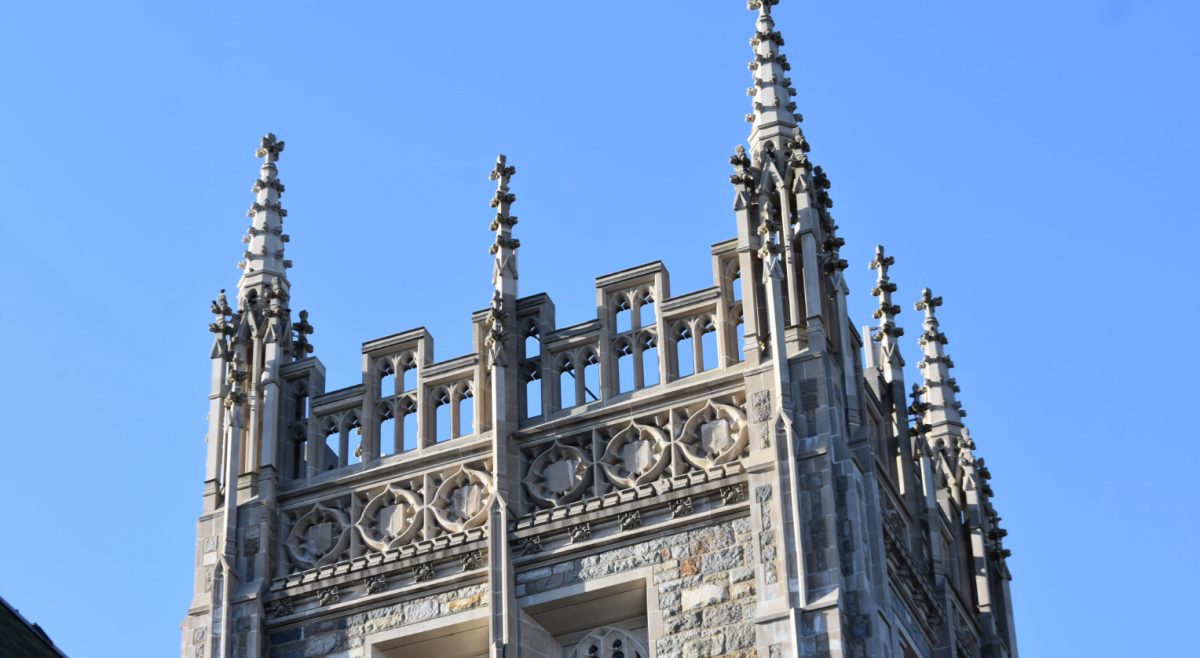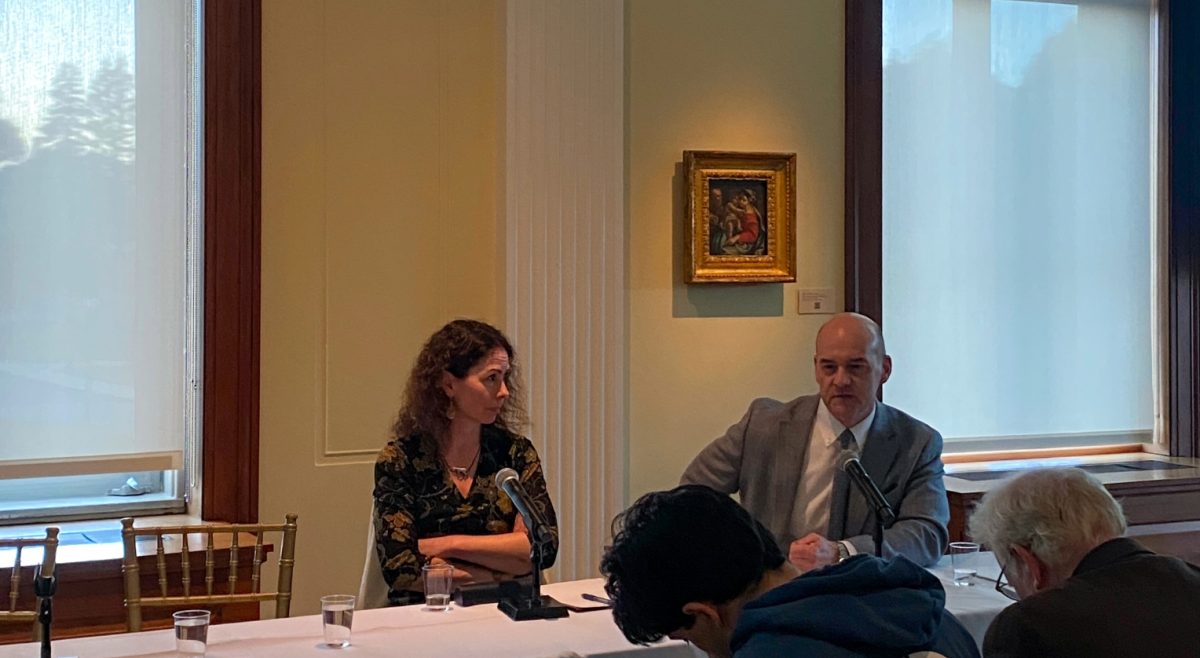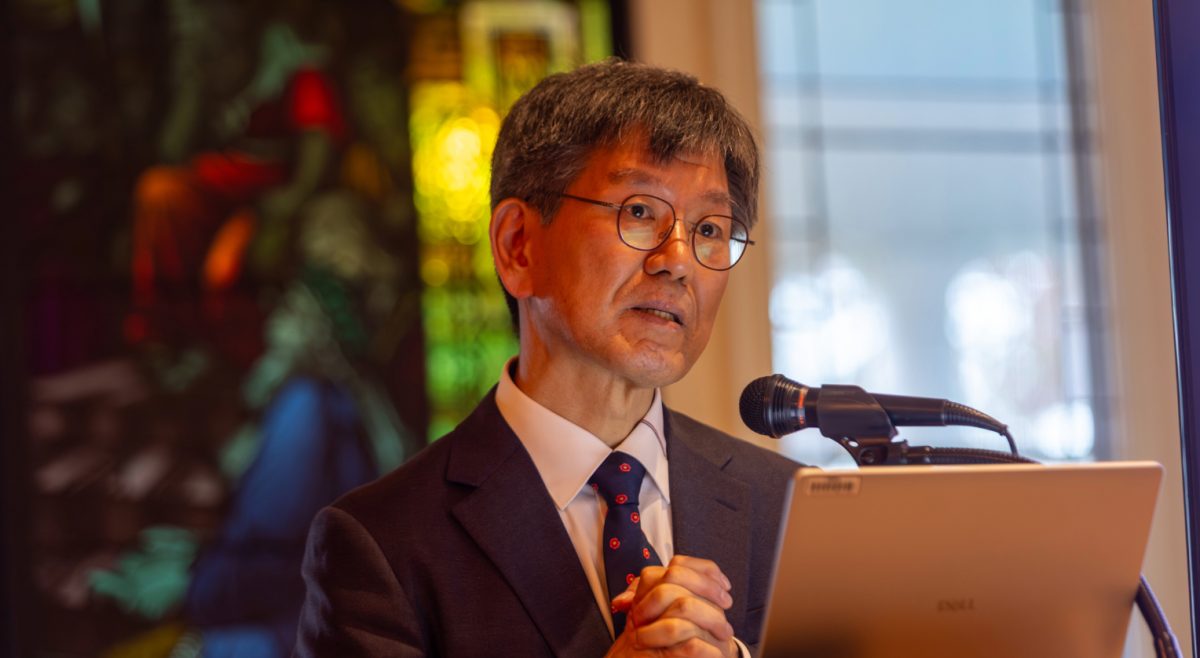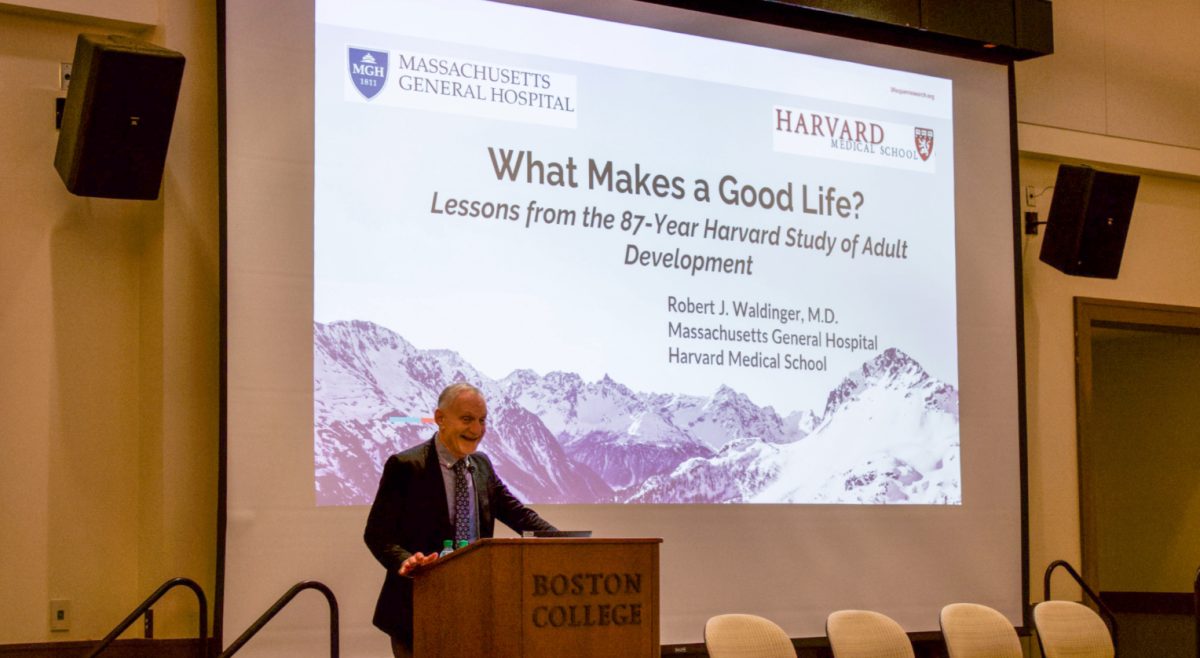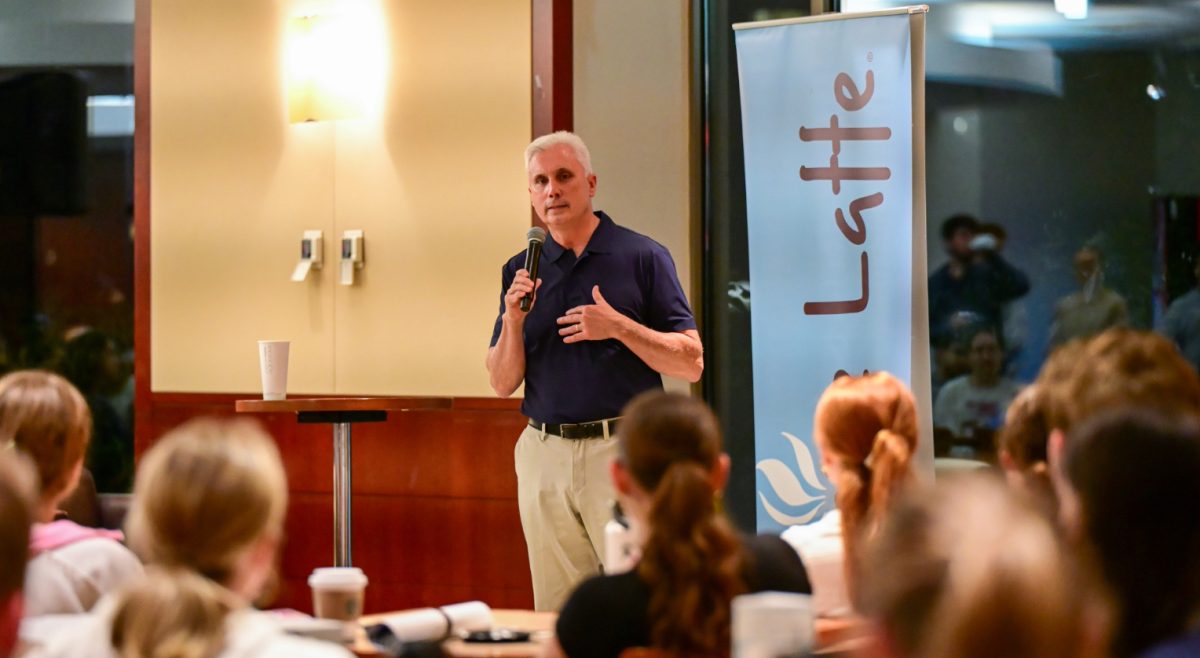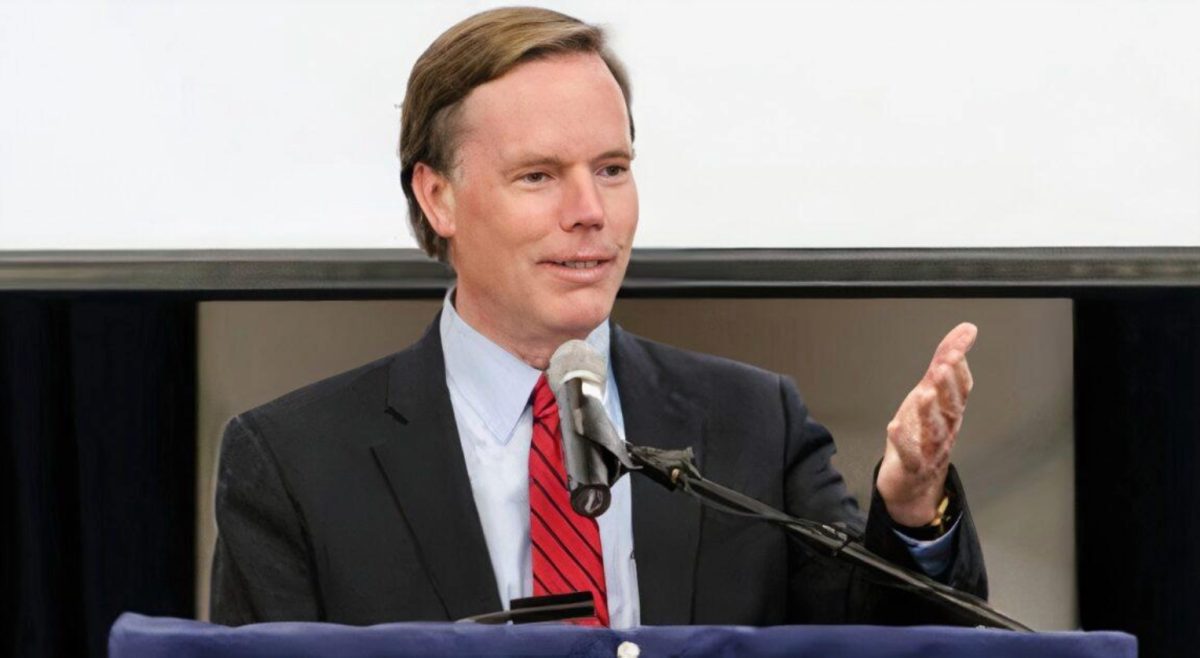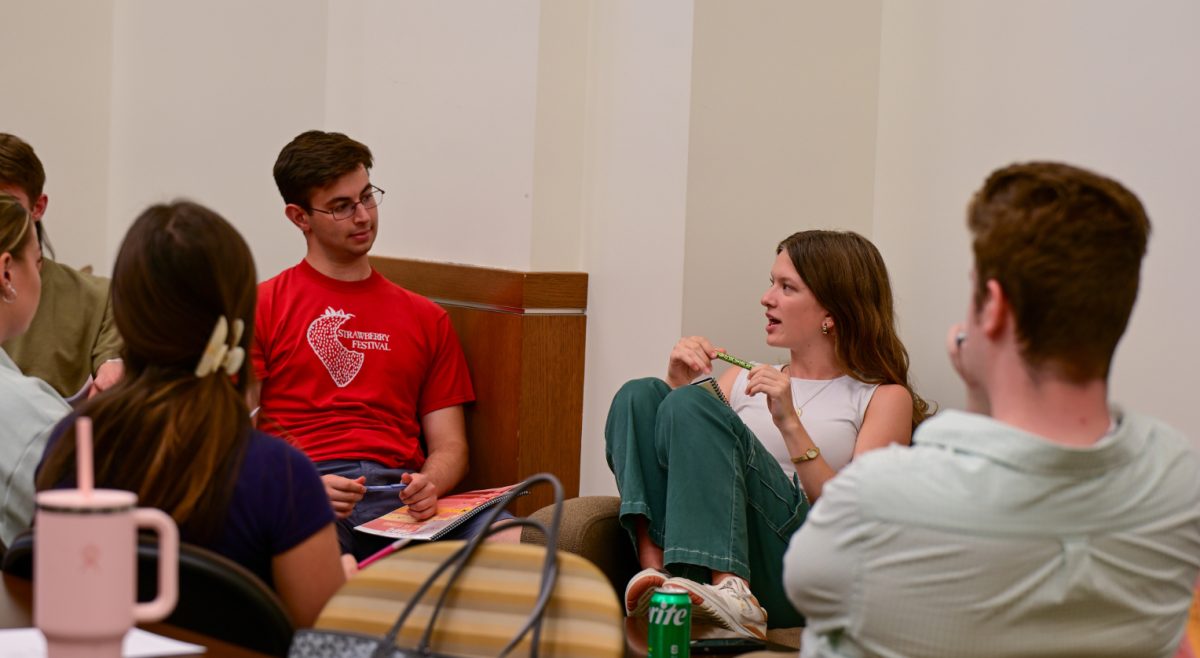When Matthew McCoy, MCAS ’29, walked into his Courage to Know class one Thursday, he already knew he wasn’t there to discuss the week’s reading with his classmates and professor.
Instead, he was there to cook spaghetti and meatballs with them.
“The food itself was okay,” he said, “but the really fun part was the experience—you know, working together as a team.”
McCoy’s class was among several that have taken part in Boston College’s Cooking in Conversation program, which brings faculty and students together in the Vanderslice Cabret Room to cook, connect, and share a meal.
The program, which launched this year, aims to foster meaningful conversations in a welcoming, informal setting, all in an effort to bring students and their professors—and the entire BC community—closer.
“By blending the intellectual and the communal, Cooking in Conversation brings our formative mission to life, inviting students and faculty to encounter one another not only as teacher and learner, but as whole persons,” Colleen Dallavalle, associate vice president for student engagement and formation, wrote in an email to The Heights.
A collaboration between the Office of Residential Life, the Office of the Vice President of Student Affairs, and University Facilities Management, the program emerged out of an “ongoing dialogue” about how the University could connect academic learning with life outside the classroom, Dallavalle said.
“We wanted to create experiences that reflect Boston College’s Jesuit, Catholic mission, where education is not only about knowledge, but also about formation,” Dallavalle wrote.
According to Dallavalle, students have consistently expressed a desire to get to know their professors better, outside of the classroom and structured learning environment.
“In today’s fast-paced world, students often move quickly from one commitment to the next, leaving limited time for meaningful, unstructured dialogue with faculty and peers,” Dallavalle wrote. “Cooking in Conversation intentionally slows that pace.”
Spending time together over food—has long been a universal way for people to connect. A 2017 Oxford University study found that sharing meals with others is associated with a higher level of perceived belonging and connectedness to a community.
“Sharing a meal is one of the oldest and most universal ways people build relationships,” Dallavalle wrote. “Cooking and eating together can lower barriers, spark conversation, and create space for reflection.”
The same idea proved true for McCoy’s class. Activities such as kneading raw ground beef with his “meatball team” helped ease the formality of the regular, seminar-style class, he said.
“People in my class who I didn’t expect to form a relationship with—we got a lot closer,” McCoy said. “It definitely brought everyone more together. Even though we made some mistakes—a couple meatballs on the floor—[it was] still a lot of fun.”
Dallavalle said she saw firsthand how classes came together, even beyond the structure of the program.
“One of my favorite moments was seeing a group of students stay long after the formal cooking portion ended; cleaning up together, laughing, and continuing the conversation,” Dallavalle wrote.
Looking forward, the program is here to stay, according to Dallavalle. Due to the strong enthusiasm from faculty across disciplines, the team hopes to expand its capacity for the spring semester and beyond.
“Ultimately, our vision is to keep creating spaces where formation can flourish, spaces where people learn with and from one another, where reflection meets relationship,” Dallavalle wrote. “And where community is built one meal, one conversation at a time.”

